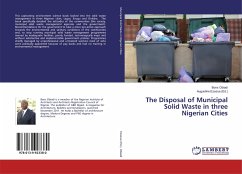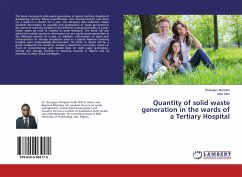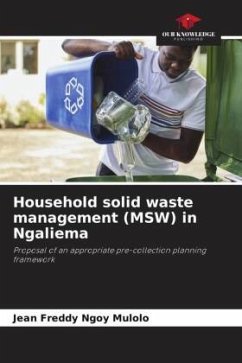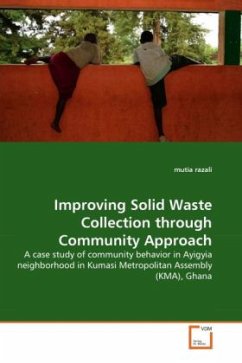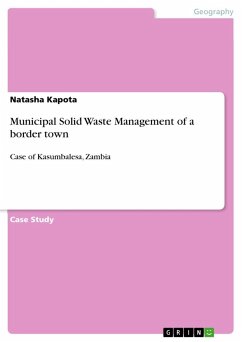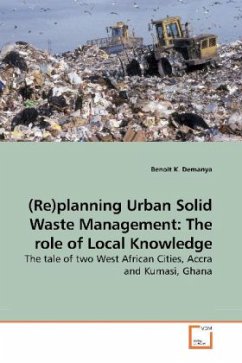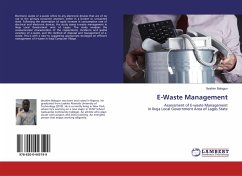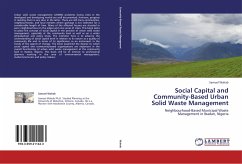
Social Capital and Community-Based Urban Solid Waste Management
Neighbourhood-Based Municipal Waste Management in Ibadan, Nigeria
Versandkostenfrei!
Versandfertig in 6-10 Tagen
52,99 €
inkl. MwSt.

PAYBACK Punkte
26 °P sammeln!
Urban solid waste management (USWM) problems facing cities in the developed and developing workd are well documented; however, progress in tackling them is very slow in the latter. There are still many communities, neighbourhoods, and local markets where garbage is not collected for a considerable length of time. Many of the affected houses are situated in poor neighbourhoos on the edges and core areas of cities. This book seeks to place the concept of social capital in the practice of urban solid waste management, especially at the community level as well as on a wider philosophical and polic...
Urban solid waste management (USWM) problems facing cities in the developed and developing workd are well documented; however, progress in tackling them is very slow in the latter. There are still many communities, neighbourhoods, and local markets where garbage is not collected for a considerable length of time. Many of the affected houses are situated in poor neighbourhoos on the edges and core areas of cities. This book seeks to place the concept of social capital in the practice of urban solid waste management, especially at the community level as well as on a wider philosophical and policy levels. The intention here is to advance the understanding of social capital both in relation to its nature as a quality of community life and in terms of its significance as an instrument in the hands of the agents of change. The book examined the degree to which social capital and community-based organizations are important in the overall functioning of urban solid waste management at the community level in Ibadan, Nigeria. This book will be of interest to professional planners working in the area of environmental management, students,lecturers and policy makers.



